
The Informer is a 1935 American drama thriller film directed and produced by John Ford, adapted by Dudley Nichols from the 1925 novel of the same title by Irish novelist Liam O'Flaherty. Set in 1922, the plot concerns the underside of the Irish War of Independence and centers on a disgraced Republican man, played by Victor McLaglen, who anonymously informs on his former comrades and spirals into guilt as his treachery becomes known. Heather Angel, Preston Foster, Margot Grahame, Wallace Ford, Una O'Connor and J. M. Kerrigan co-star. The novel had previously been adapted for a British film of the same name in 1929.

Charles Laughton was a British-American actor. He was trained in London at the Royal Academy of Dramatic Art and first appeared professionally on the stage in 1926. In 1927, he was cast in a play with his future wife Elsa Lanchester, with whom he lived and worked until his death.

Greta Garbo was a Swedish-American actress and a premiere star during Hollywood's silent and early golden eras. Regarded as one of the greatest screen actresses of all time, she was known for her melancholic, somber persona, her film portrayals of tragic characters, and her subtle and understated performances. In 1999, the American Film Institute ranked Garbo fifth on its list of the greatest female stars of classic Hollywood cinema.

Ernst Lubitsch was a German-born film director, producer, writer, and actor. His urbane comedies of manners gave him the reputation of being Hollywood's most elegant and sophisticated director; as his prestige grew, his films were promoted as having "the Lubitsch touch". Among his best known works are Trouble in Paradise (1932), Design for Living (1933), Ninotchka (1939), The Shop Around the Corner (1940), To Be or Not to Be (1942) and Heaven Can Wait (1943).

Elsa Sullivan Lanchester was a British actress with a long career in theatre, film and television.

The Paradine Case is a 1947 courtroom drama with elements of film noir set in England, directed by Alfred Hitchcock and produced by David O. Selznick. Selznick and an uncredited Ben Hecht wrote the screenplay from an adaptation by Alma Reville and James Bridie of the 1933 novel by Robert Smythe Hichens. The film stars Gregory Peck, Ann Todd, Alida Valli, Charles Laughton, Charles Coburn, Ethel Barrymore, and Louis Jourdan. It tells of an English barrister who falls in love with a woman who is accused of murder, and how it affects his relationship with his wife.
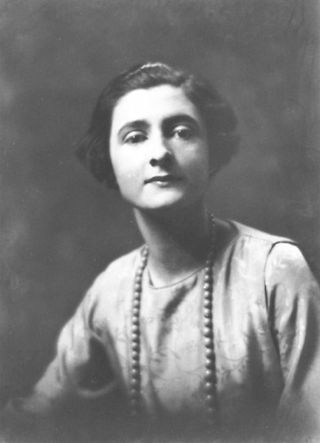
Mercedes de Acosta was an American poet, playwright, and novelist. Although she failed to achieve artistic and professional distinction, de Acosta is known for her many lesbian affairs with celebrated Broadway and Hollywood personalities including Alla Nazimova, Isadora Duncan, Eva Le Gallienne, and Marlene Dietrich. Her best-known involvement was with Greta Garbo with whom, in 1931, she began a sporadic and volatile romance. Her 1960 memoir, Here Lies the Heart, is considered part of gay history insofar that it hints at the lesbian element in some of her relationships.

James Rufus Agee was an American novelist, journalist, poet, screenwriter and film critic. In the 1940s, writing for Time, he was one of the most influential film critics in the United States. His autobiographical novel, A Death in the Family (1957), won the author a posthumous 1958 Pulitzer Prize. Agee is also known as a co-writer of the book Let Us Now Praise Famous Men and as the screenwriter of the film classics The African Queen and The Night of the Hunter.
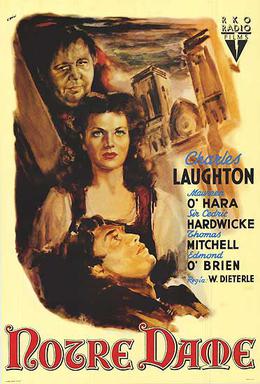
The Hunchback of Notre Dame is a 1939 American romantic drama film starring Charles Laughton and Maureen O'Hara. Directed by William Dieterle and produced by Pandro S. Berman, the film is based on Victor Hugo's 1831 novel. The film is also noted for being the first film ever shown at the Cannes Film Festival before the rest of the festival was cancelled due to the start of World War II.
Stanley Cortez, A.S.C. was an American cinematographer. The younger brother of actor and director Ricardo Cortez, Stanley worked on over 70 films, including Orson Welles' The Magnificent Ambersons (1942), Charles Laughton's The Night of the Hunter (1955), Nunnally Johnson's The Three Faces of Eve (1957), and Samuel Fuller's Shock Corridor (1963) and The Naked Kiss (1964).
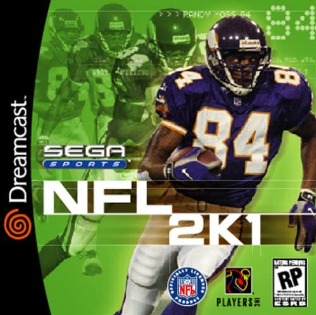
NFL 2K1 is an American football simulation video game that uses remediation, and was published by Sega and developed by Visual Concepts. It was released on Dreamcast on September 7, 2000, with multiple in-game commercialization like its Dreamcast ads in stadiums. Randy Moss of the Minnesota Vikings is featured as the cover athlete. Upon its release, it outsold the PlayStation 2 version of Madden NFL 2001 by 13,000 units in its first week, and 49,000 units its second week.

Madden NFL 2001 is an American football video game. It is the third in the Madden NFL series to include an NFL player, Tennessee Titans running back Eddie George, on its cover. In addition, it is the first game in the series to have a player, instead of John Madden featured prominently on the box art. Madden's picture is shown on a small logo, which would reappear for every following game until Madden NFL 06. It is also the first game in the Madden NFL series to appear on the PlayStation 2 game console. This is the first Madden game to feature NFL Europe teams.

Queen Christina is a pre-Code Hollywood biographical film, produced for Metro-Goldwyn-Mayer in 1933 by Walter Wanger and directed by Rouben Mamoulian. It stars Swedish-born actress Greta Garbo and John Gilbert in their fourth and last film together.
The 2nd New York Film Critics Circle Awards, announced on January 4, 1937, presented on January 24, 1937, honored the best filmmaking of 1936.
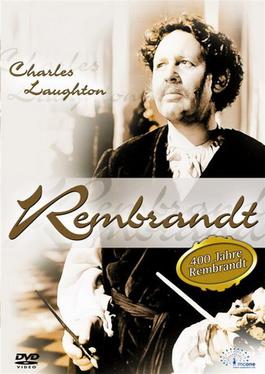
Rembrandt is a 1936 British biographical film made by London Film Productions of the life of 17th-century Dutch painter Rembrandt van Rijn. The film was produced and directed by Alexander Korda from a screenplay by June Head and Lajos Bíró based on a story by Carl Zuckmayer. The music score was by Geoffrey Toye and the cinematography by Georges Périnal.
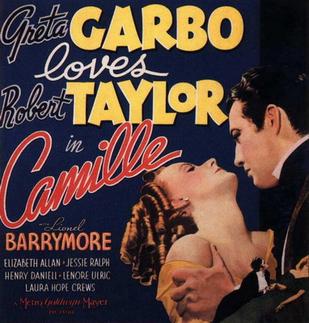
Camille is a 1936 American romantic drama film from Metro-Goldwyn-Mayer directed by George Cukor, and produced by Irving Thalberg and Bernard H. Hyman, from a screenplay by James Hilton, Zoë Akins, and Frances Marion. The picture is based on the 1848 novel and 1852 play La dame aux camélias by Alexandre Dumas, fils. The film stars Greta Garbo, Robert Taylor, Lionel Barrymore, Elizabeth Allan, Jessie Ralph, Henry Daniell, and Laura Hope Crews. It grossed $2,842,000.

Anna Karenina is a 1935 Metro-Goldwyn-Mayer film adaptation of the 1877 novel Anna Karenina by Leo Tolstoy and directed by Clarence Brown. The film stars Greta Garbo, Fredric March, Basil Rathbone, and Maureen O'Sullivan. There are several other film adaptations of the novel.

Anna Christie is a 1930 Metro-Goldwyn-Mayer pre-Code film adaptation of the 1921 play of the same name by Eugene O'Neill. It was adapted by Frances Marion, produced and directed by Clarence Brown with Paul Bern and Irving Thalberg as co-producers. The cinematography was by William H. Daniels, the art direction by Cedric Gibbons and the costume design by Adrian.

Mother Goose Goes Hollywood is a 1938 animated short film produced by Walt Disney Productions and distributed by RKO Radio Pictures. The short was released on December 23, 1938. The film parodies several Mother Goose nursery rhymes using caricatures of popular Hollywood film stars of the 1930s. The film was directed by Wilfred Jackson and was the third-to-last Silly Symphony produced.
The 79th New York Film Critics Circle Awards, honoring the best in film for 2013, were announced on December 3, 2013 and presented on January 6, 2014.
















